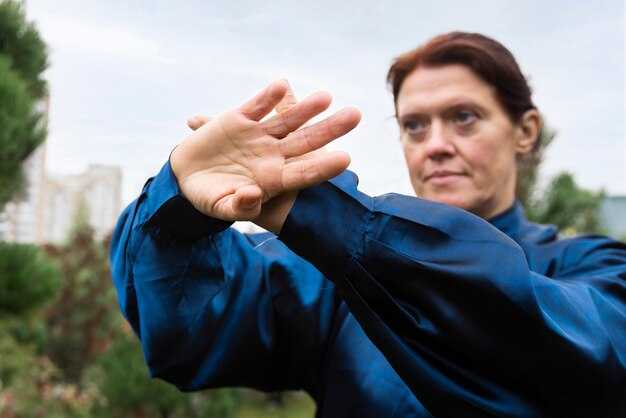Emotionally healthy people tend to run from avoidant partners. Yet when childhood neglect primes you, you can become especially drawn to someone who keeps pulling you close and then pushing you away. At first you can clearly see that their behavior is selfish and emotionally abusive. But if the cycle continues and you keep hoping each time will be different, your thinking and perception begin to erode until you actually start believing that they are the wounded one and that you’re the person causing your own hurt. My letter today is from a woman I’ll call Taran, and she writes, “Hi, Anna. My childhood wasn’t exactly easy. My little sister has severe autism and learning disabilities. I’m the middle child; my parents fought a lot and the word ‘debt’ came up frequently. I developed generalized anxiety disorder among other things. But this isn’t about me. Okay, I’ve got my little highlighter ready — there are a few things I want to come back to — but let’s look at what’s in Taran’s letter. I met my ex five years before we actually got together. I found his lost dog and he invited me for coffee. I later discovered he had a girlfriend, though they were supposedly on a break; he never told me that. I did some online snooping and realised there was someone else. We had an instant connection and then stopped talking because it felt unfair. Five years later we were both single and he reached out. I thought he might be a bit of a player so I didn’t take it too seriously at first, but he started messaging me constantly — from the moment he woke up until he went to bed. I fell for him hard, despite the red flags. After four months of talking all day every day, behaving like a couple, having dinners with his family and sleeping together, I asked what we were — and he flipped out. He said his last relationship had been with an apparently abusive, unstable girlfriend and he wasn’t sure he was ready for something serious. I told him, ‘I’m not the type of girl to be casual.’ I began to walk away and he cried, begged me not to go and said he would try. Then he wavered and asked for ‘two days to decide.’ He came back after one. Then he swung again and asked, ‘Can we do no labels?’ God. I went along with it, because I was in love with him and the push-pull — the on-and-off contact and the uncertainty about whether he wanted me — completely destroyed me.” (Note: I’m circling that word ‘destroy’ because it appears more than once in this letter.) “A few months after that he declared, at least in his head, that we were ‘official,’ although he never actually said that to me. Official in his head. Then lockdown happened, and to avoid being apart I asked if I could stay with him and his mother; he agreed, a little sheepishly. Living together was blissful: not a single argument. We showered together, cuddled through the night, and while he played his games I painted peacefully. Then, in March — a little over a year since we began seeing each other and seven months after he had decided we were ‘official’ in his head — he was moving and there wasn’t room for me, so I had to go back home. There’s no real explanation for what changed. I wanted to say ‘I love you’ and he hadn’t said it back. I didn’t say it first because he had previously freaked out when things got serious. But for me, after everything, a year felt like too long given his earlier indecision, and it was hurting. I told him, ‘I feel like we’re not on the same page, and if not, I need to be out.’ He said, ‘Of course, he loves me.’ Cut to two months later and he told me he felt like he’d been given an ultimatum, that I’d pushed him, and that he didn’t know if he’d ever felt love. See the pattern? I told him he needed to get therapy and work this out. He agreed. Ah yes — the comforting idea of therapy. I asked every month or so whether he’d found anyone, and he hadn’t even started looking. He later said he did love me but couldn’t say it aloud. I made it clear I needed to hear it, and he said he’d try. Three years passed and he never voiced it. On top of that, he only wanted to see me two or three times a week. He moved into a huge apartment and never asked me to move in. We were in our mid-thirties. He often prioritized his hobbies over booking time with me. He did do lovely things — he was affectionate, looked after me when I was ill, cuddled me at night and cooked for us — but by then I was exhausted. I was, as I said, destroyed. I would watch a film and when someone said ‘I love you’ it would feel like a knife. I always wanted to know where we were headed and he refused to talk about the future — which, by the way, is an answer in itself — and he said he wouldn’t think about it. During our three-and-a-half-year relationship he went no contact to decide whether he wanted me about five times. His dad died when he was twenty after a long battle with cancer that began when my ex was six, so he grew up with trauma. I know he never really dealt with it, and I wonder if I should have been more patient, or whether he simply wasn’t ready for me. We imploded last summer when I couldn’t take it any longer, and he broke up with me. He said we weren’t compatible. I still miss him every day and don’t think I’ll ever love anyone the way I loved him. I’ve never understood why he couldn’t tell me he loved me. I didn’t demand it constantly — only now and then. I was so open and patient and he just used that kindness and did nothing. In our last argument he said we could move in together in a year, but by then it was too little, too late. Did I break this? Taran”

You ask, “I notice this pattern frequently, Taran. And no — you didn’t ruin things. But the part where you actually believe that you did is solid evidence that you’ve internalized a destructive mindset that’s working against you: you’re convinced you broke off a relationship with someone who, in reality, has been keeping you at arm’s length. Right? You imagine a version of the relationship that could have existed because of all the good moments you shared with him. But here’s the truth: he’s a textbook avoidant. And you’re exhibiting a predictable response—when you point to his past pain and say he never processed his father’s death or needs therapy, that’s a very common pattern. If I had a penny for every letter I receive from someone entangled with a partner who’s emotionally distant and avoidant, where they believe the answer is to get that person into therapy and then love will arrive — well, I’d be rich in pennies. We’re very good at making rationalizations instead of confronting the painful reality: we aren’t being loved in the way we need to feel secure in a relationship, and that corrodes us. If your childhood included trauma, it might seem sensible to shut down your needs, to be more forgiving, or to hope other people will go to therapy so love will magically appear. We’re brilliant at seeing potential love, but terrible at recognizing when love simply isn’t present. You were not being loved. Someone who keeps breaking up with you just to test whether they want you and who goes no-contact repeatedly is signaling something serious. I suspect avoidance. Don’t hang your hopes on the label alone — just because there’s a name for it doesn’t mean someone who isn’t genuinely working on their issues will change. Real change happens for people who truly want it; you know they want it by what they do without you nagging or pushing them. Their behavior shifts consistently, not only after you’ve walked away or when they’re lonely months later. One avoidant trait is shutting down emotionally: they may feel affection but can’t say, “I love you.” They avoid commitment; living together can be fraught. I remember you telling me lockdown blissed you out when you moved in, but there were no “I love you’s,” no explicit commitment — so you never really had safety, only the temporary security of circumstances. The lockdown couldn’t last forever, and once choices reappeared, it became clear he wasn’t making you a priority. I can only imagine how awful that felt while you were investing in the relationship. But notice: you moved in with someone who wouldn’t say he loved you and who hadn’t made any firm promises. Speaking from experience, I wouldn’t advise anyone to move in with someone on such thin evidence of a long-term future. When you cohabit, much of your sense of safety becomes tied to the success of that partnership. If they aren’t giving you love or they subject you to emotional turmoil, stepping back costs you everything. That’s a powerful disincentive—and if you already have attachment wounds that make pulling away difficult, moving out can re-trigger deep trauma. I sympathize with you, and I encourage you to be honest with yourself: you can learn to date more slowly. That is the central lesson I teach in my dating course. You can start identifying the signals that show someone is truly serious in the way you need. Be explicit about your requirements and how you would know someone meets them — and don’t rely on the absence of an explicit declaration. Of course people can say things they don’t mean, so time is essential. Observe how they behave, what upsets them, what makes them retreat, how they return and what they say. Time allows you to gather reliable evidence. If you have attachment wounds, you may tend to rush into relationships, bond quickly, and have sex early as a way to soothe anxiety — sex can temporarily convince your body that you’re “together.” But then the painful realization arrives: that what you felt in the moment didn’t reflect a durable commitment. That realization is devastating. To be that vulnerable and hopeful, to invest your life and future in someone who doesn’t reciprocate, is crushing. From his behavior, I never felt it was a surprise that he couldn’t offer you what you needed. He signaled it throughout. Someone who cuddles or looks after you when you’re ill is capable of kindness, but that does not equal a promise to stick through hard times or to commit. Intimacy in the form of cuddling or acts of care are not the same as commitment — they’re crumbs compared to steady devotion. Avoidants can tolerate a little love, connection, and a sexual relationship, but they struggle with sustained closeness. If you seek deep emotional intimacy and trust, avoidants are a poor long-term match. If you are in a relationship with an avoidant and want to make it work, both people must meet halfway and do real work. It’s possible, but both parties have to engage. For you, Taran, he’s already your ex. When you decide you’re ready to date again, before taking action, consult my red flags checklist for dating. Even if you know some of this already, having the signs spelled out plainly helps. Childhood trauma creates blind spots that predispose you to attach to avoidant people. They withdraw when you move closer; they don’t understand being present or honoring important moments. Avoidants can perform parts of a relationship well, but over time they often leave you feeling neglected, unvalued, and isolated. Why does it sometimes feel good at first? Is there something about their distance that appeals to people with trauma? Can anyone be happy when their partner’s behavior constantly disappoints them? My next letter comes from a woman I’ll call Marilyn. She writes, “Hi, Anna. I need clarity about a recurring problem in my marriage. I’m 30, married for 10 years to a genuinely good man. He’s financially responsible, and last year we bought and beautifully furnished a house — a major milestone. We have two young children, a daughter and a baby son. My husband gives our family a lot of stability; I truly can’t fault him in many ways. But sometimes he seems distracted, lost in his own head. I’ll make small bids for connection — offer him a drink, ask how he is, sit beside him, make a random comment hoping to spark engagement. He doesn’t register these as invitations for closeness; he treats them as practical or minimal interactions, responding just enough to avoid appearing rude. That distance makes me feel worthless, unloved, taken for granted, and unappreciated. It hurts deeply.” She continues: “This intensifies at family gatherings. My husband focuses on everyone else and unintentionally ignores me. If I speak, he often glazes over me like I’m invisible, but if someone else talks he’s all ears. He admitted to me that he feels self-conscious about showing intimacy in public and struggles to display affection or even attentive listening and eye contact. This is causing me a lot of pain because we see both sides of the family often; his public avoidance leaves me shut down and emotionally wrecked for days. He treats his sister-in-law and her dog with more warmth than he shows me. My upbringing matters here: my mother likely had borderline personality disorder, though never formally diagnosed. Her dramatic mood swings meant we walked on eggshells; she could erupt into rage, screaming threats. Once I ran to a friend’s house for safety; later, when I returned, my mother acted as if nothing had happened. Our household was chaotic and neglectful — dirty, disorganized, often without basic necessities like hot water or clean clothes. I never had friends over and longed for the simple comforts other kids had: being called in for dinner, baths, pajamas, a loving tuck-in. My parents still argue loudly about little things. My father was a workaholic and mostly absent; I didn’t feel his steady presence. From childhood I fantasized about a deeply intimate, loving marriage — the connection and adoration I never received from my family. Now, how do I handle my husband’s emotional distance and public avoidance? It’s reached a point where I dread family events and feel emotionally shattered for days. Am I the problem or is he? What can I do? Special days like anniversaries and birthdays are tense and leave me wrecked, despite me communicating my need to be romanced and gifted. He treats those days casually — a normal meal out, no effort to make me feel special; gifts are rare. He says I want an “Instagram romance” that isn’t real; I just want him to pay attention and tune into me. I feel desperately unloved and resentful. Please help, Marilyn.” Okay, Marilyn — you’re married to an avoidant. That doesn’t mean your chance at happiness is gone, but I can offer guidance. Avoidant attachment often arises when children were deprived emotionally. You might have an anxious attachment yourself: craving closeness because you missed it. Your description of watching other families’ routines — dinner, baths, pajamas — and yearning for that makes sense; I hear you. Many of us idealize a deeply intimate marriage; sometimes that ideal reflects a real, rare kind of partnership, but often married life is also full of mundane, disconnected hours. The longing you hold for intimacy is valid. What you’ve described is classic avoidant behavior: intimacy makes them uncomfortable, often because they didn’t receive it growing up. Their adaptation becomes self-reliance: “I’m fine on my own.” Anxious types crave closeness and may enter relationships somewhat blindly, dazzled by the presence of someone who seems to love them. The arrival of children—especially two small kids—changes a marriage dramatically. Raising kids often turns partners into co-parents running a household, which can push romance and closeness aside. That pressure compounds what each partner brings from their own wounds. What you describe could improve as your children grow or if your husband, who seems well-intentioned, chooses to work on himself. In relationships where one partner is avoidant and the other insecure, the dynamic sometimes persists because the insecure partner won’t leave while the avoidant partner doesn’t fully commit; there’s a grim stability to that arrangement. But it can also be a form of dysfunctional fit: the anxious partner’s intensity and emotional needs are tolerated more easily by someone who’s numb or detached, even though the avoidant still pulls away. It’s not easy, but it’s not necessarily a dead-end. With little children, you have strong reasons to attempt compromise. An anxious partner can increase flexibility and develop outside support—friends and others who help meet emotional needs so they don’t fall entirely on the spouse. Your husband, if willing, can make small, concrete efforts: remember special dates, show up with thoughtful gifts, and be guided by direct requests (e.g., “This is what would make me feel loved: X”). Avoidants often don’t intuitively ‘go there,’ so telling them in plain terms can help. Ultimately, each person must accept the other as they are; leaving is an option, but for parents of young children it’s a serious, extreme step. There’s often room to adapt. I deeply feel for you — juggling small kids and unmet emotional needs is enormously painful. You might long for someone to say, “You’ve worked so hard today; let me hold you, rub your feet, and make dinner,” and that’s a reasonable wish. But life doesn’t always deliver every imagined kindness. If your husband happens to see this, I hope he’ll try. For you, ask for what you want and learn to process the feelings that arise. Given your childhood, the hurt runs deep; it’s a well of pain. I recommend a daily emotional practice to prevent sadness and anger from being suppressed. You don’t have to vent destructively, but you should face your feelings so their intensity eases. A structured writing practice I teach helps many people regulate emotion and restores equilibrium — which benefits you and your children, because a calmer, regulated parent co-regulates their kids. Here’s how falling for an avoidant feels: there’s an intense connection that feels like home; you attach quickly because moments of closeness feel so possible. But early signs that they can’t reciprocate appear right away — yet they don’t register as red flags because the intensity of being near that person feels so powerful. If this keeps happening relationship after relationship, it’s a pattern, not just bad luck. Are you doomed to pine for people who can’t love you back? Not necessarily. My next letter is from a woman I’ll call Laya. She writes, “Hi, Anna. I can’t get over this man and I don’t want to want him. I’m 42 — too old for this.” (I’m using my fairy pencil to mark things I’ll return to.) Laya tells her story: at five, her older sister reported their father for abuse; they were briefly placed in foster care, and the experience altered her profoundly. Foster kids bullied her; she cried with separation anxiety as a child and was mocked. Once a foster mother locked her in a hot room without food or water for a day. After returning home, trust in adults evaporated. Her mother stayed with her father despite everything; loud fights about money and slamming walls were normal. Laya remembers constant anxiety, fear of male teachers, early drinking and drug use, accelerating her desire to grow up fast. She finished school early and left home at 19. Hyper-independence followed: she avoided asking for help, never cried in front of people, became perfectionistic, and used dark humor as a coping mechanism. She had intense crushes and relationships that often left her obsessed. Later, she endured nine years with an alcoholic, then three with a clinically diagnosed narcissist — the latter left the deepest damage. After breaking free, she worked hard, excelled at work, and dated casually for three years before finding “safety” in an avoidant: steady, no drama, no substance abuse. He committed after three months, but what that commitment meant was limited — it was never going to deepen into the kind of relationship she wanted. When she fell ill with a serious autoimmune disease and lost her job, she asked him to move in for support; he refused repeatedly. She had never asked anyone for help before, so being turned down felt like a knife. When she threatened to move to a cheaper place, he agreed to move in — but begrudgingly. He retreated into a “man cave” and emerged only for food and sex; she felt like a houseplant, ignored. They eventually broke up. Later she reconnected with an old friend who made her feel special, hailed her as the one who got away, and spoke grandly about the future. But whenever conversation turned intimate, he pulled away the next day — hot then cold. She found herself behaving badly, pining, texting; his responses grew intermittent. She blocked him on social media and kept a list of cons to remind herself why she ended it. Still she can’t quite delete his number, hoping he’ll “get it together” and become the better version she imagines. It’s been over three months of no contact, yet she feels the old longing. She wants to be free of him. What is she missing? Thank you, Laya. Your history of severe early trauma — foster care, abuse, neglect — has predictable effects: detachment and distrust of adults is common, as is hyper-independence. I won’t say I’m a clinician here, but I’ve seen these patterns among countless people: trauma disrupts development and leaves blind spots in relationships. Saying “just heal your trauma” sounds facile. Healing is not a single act; it’s a way of living that includes safe people, honest self-knowledge, and new habits. It takes building a community of people who can love and support you instead of letting loneliness drive you toward harmful relationships. Your foster trauma and the incident of being locked in a hot room are horrifying; no wonder trust was wounded. A history like yours primes someone to avoid depending on adults, to fear asking for help, and to expect that male partners will let them down. You did show strength by leaving and surviving; your hyper-independence helped you escape. Yet that very independence can create a barrier to closeness: you learned to handle everything alone, and you may have difficulty being vulnerable in healthy ways. You described a long pattern: obsessions, relationships with people who treated you poorly, an abusive partnership, then an avoidant whom you treated as safe. That “safety” is often a low-drama refuge — no yelling, no chaos — but it may lack growth and emotional reciprocity. When you asked him to move in after getting sick and losing work, his refusal validated a core fear: men can’t be counted on. He later moved in begrudgingly, but resentment followed, and he essentially checked out. You can’t force an avoidant to be emotionally invested just by making them live with you. After your breakup, the new man re-entered like a love bomber: flattering, promising, exciting — until he pulled away when things got close. Hot-cold behavior is manipulative and destabilizing; it creates addictive cycles. You did what many trauma survivors do: you tried to make the relationship work, hoping they’d become the partner you imagined. That’s the trauma speaking: when someone behaves badly, a wounded part of you still thinks it’s worth trying to fix them. But the pattern is not a moral failing — it’s a trauma response. Recognize those intense longing states as symptoms of old wounds. Once you can label them as such, you can begin to step outside them and make different choices. The key is to treat these impulses as symptoms to manage, not truths to follow. You’ve been through terrible relationships — a narcissist, substance abuse, neglect — and your history has given you vital information about how trauma shapes attachment. When someone acts unavailable, they can feel “safe” in a perverse way because they don’t require you to rise to unfamiliar levels of vulnerability. Yet those arrangements are limiting and often damaging. You asked about whether the man who keeps coming back might ever be what you hope he could be. Realistically, if someone repeatedly shows they won’t be a genuine partner — that they disappear when you need them — they are demonstrating what staying with them long-term would look like. You deserve someone who chooses you consistently. So what can you do now, Laya? I’ll give you three or four concrete practices that work for people in your situation. First, interrupt the loop of obsession: no ruminating, no social media stalking, no reaching out. Create strict boundaries to prevent reliving the pattern. Second, adopt a daily emotional processing routine: a writing method I teach helps people discharge the charged feelings and return them to neutral memories. It’s not about suppressing pain; it’s about converting the unbearable looped emotion into a manageable memory. Third, bring more joy and novelty into your life — have fun, reconnect with friends, and create experiences that don’t involve this person. That helps dilute the belief that one person must supply all meaningful feeling. Fourth, cultivate a steadier support network: friends, groups, or communities where people are committed to healthy living. If you’re isolated, this work is harder. Many people find peer-support groups, 12-step programs, or structured membership communities useful; they provide steady, nonjudgmental presence. I encourage you to use these tools: disciplined interruption of the cycle, daily emotional processing, pleasurable activities, and supportive relationships. You’re very close to breaking free of this pattern. The writing practice is essential because much of the trauma’s hold is physiological — it lives in your nervous system and keeps the brain stuck in loops of adrenaline, cortisol, and the reward circuits that keep you fixated. Processing those feelings helps your nervous system unhook. You can also use immediate techniques — cold exposure, controlled breathing, EMDR-like eye movements — to interrupt a spiraling train of thought. When you ask, “Why do I still want this cowardly man who doesn’t even like cats?” I appreciate your humor. You’re strong and resilient, and you’re doing the work by reflecting on this. Keep pushing forward: write the feelings out, schedule fun, build a supportive circle, and practice the tools that help you return to equilibrium. Next, I want to share a summary of warning signs I keep in a pocketable document so you can check yourself when you catch feelings for someone and begin to justify them. If a partner gives you the silent treatment, storms out without explanation, goes AWOL for days or weeks — those are emotional abuse. If you’re left obsessing and clawing for crumbs of communication, your trauma has been triggered and the dynamic needs to change for any chance at peace. I’m not a clinician, and stonewalling is an issue best addressed with professional help, but I’ve learned through my life how to heal these toxic dynamics so real love and trust can grow. Another letter arrives from “Brin.” She writes, “Dear Anna, I think I’m trapped in a trauma bond with my boyfriend because he stonewalls after arguments. Am I delusional for trying to make this relationship work despite such toxic patterns?” Brin’s story: she’s 26, her boyfriend is 42, they’ve been on-and-off for two years. The relationship can be amazing: he lavishes attention, texts often, and plans trips. But conflict is the problem. She naturally bubbles with energy, but when she’s tired or hungry she gets quiet and irritable. He senses mood changes and becomes angry and defensive, blaming her for ruining his peace. This escalates into arguments with yelling and her crying. Afterward, he shuts down for days, ignoring calls and messages. During his silence, she becomes desperate, always the one who reaches out and apologizes; after reconciliation, everything feels normal — until the next fight. Towards the end of the first year fights increased, he threatened breakups, and once went silent for a month and a half. She eventually started seeing someone else; he returned begging for her back and promising change. He did try at first, then regressed. He says he needs time to process and calm himself. He had a rough childhood — father died young, a largely absent mother due to work, and later a stepfather kicked him out at 16. He lacks many close friends or family supports. Brin’s family and friends tell her to leave because of the stonewalling and its impact on her; she’s unsure whether she’s in a trauma bond but still wants the relationship because, outside the stonewalling, he’s sweet, caring, and funny. She asks for my opinion. Brin, I’ll help. The large age gap stands out, but more important is the pattern: stonewalling is classic avoidant behavior and can be emotionally abusive. Any behavior that repeatedly harms you is a legitimate reason to end a relationship. Ask yourself: does this person elevate you into a better version of yourself? From what you’ve described, the relationship is tearing you apart. Trauma bonds are essentially intermittent reinforcement: unpredictable kindness followed by withdrawal creates an addictive cycle. This pattern is intentionally used in extreme coercion; in relationships it can similarly trap someone who keeps hoping the next “high” will stick. Trauma primes us to stay in these cycles. You may have an insecure attachment that makes you vulnerable to them; if you experienced parental inconsistency or neglect, you might unconsciously tolerate similar patterns as an adult. The result is a worn-down self-image and difficulty leaving even when loved ones advise you to. That intense inability to leave often resembles what some therapists call abandonment melange — a heightened, existential fear of loss caused by past abandonment. The truth is, when someone repeatedly ghosted you for long stretches, they’ve shown you what life with them looks like. Whether he’s processing or evading, the effect on you is the same: pain, fixation, and destabilization. If you want the relationship to change, it’s not your job alone to force him to change. Avoidant people can learn kinder ways of taking space — saying, “I’m feeling overwhelmed and need a short break; can we talk in an hour?” — instead of disappearing for weeks. The Gottman Institute’s research names stonewalling as one of the “four horsemen” of relationship breakdown (complaint, criticism, contempt, stonewalling). Stonewalling and contempt predict major relational damage. If he’s open to learning, couples work and communication models can help, but he must be willing to shift his habits. In the meantime, you need a fulfilling life of your own — friends, activities, and pleasures so you aren’t dependent on him for emotional stability. Having a rich life gives you the freedom to leave unhealthy dynamics without catastrophe. Many people find healing by building a community of support: therapy, groups, or friendships with people committed to growth. Healing isn’t about being perfect before entering a relationship; it often happens while we find better partners. And sometimes painful relationships must end for us to get healthier. If you’re vulnerable to romantic manipulation, carry a list of checks for common manipulative tactics so you can remember what’s healthy and what’s not when you start to feel drawn in. In short: stonewalling is harmful. You deserve a partner who shows up reliably. If he truly cares, he can learn more compassionate ways to manage overwhelm without abandoning you for weeks. If he won’t, you owe yourself a life where you don’t have to tolerate that treatment. Prioritize tools, supports, and boundaries that protect your emotional well-being.



 Як виглядає життя, коли ти любиш УНИКАЮЧОГО (компіляція з 4 відео)">
Як виглядає життя, коли ти любиш УНИКАЮЧОГО (компіляція з 4 відео)">

 How to Build a Loving Relationship with an Avoidant Without Getting Hurt">
How to Build a Loving Relationship with an Avoidant Without Getting Hurt">
 ПЕРСТАНЬ намагатися заслужити повагу людей та ЗРОБИ ось це натомість">
ПЕРСТАНЬ намагатися заслужити повагу людей та ЗРОБИ ось це натомість">
 Шокуюча правда про те, чому евазивні люди зневажають вас (і перевіряють вашу любов)">
Шокуюча правда про те, чому евазивні люди зневажають вас (і перевіряють вашу любов)">
 Ось моя історія про те, як я навчився допомагати іншим зцілювати симптоми травми">
Ось моя історія про те, як я навчився допомагати іншим зцілювати симптоми травми">

 Встаньте за те, що ваша душа знає, що вам потрібно (4-відео компіляція)">
Встаньте за те, що ваша душа знає, що вам потрібно (4-відео компіляція)">
 Relationship Success in Just ONE Question! Will you Ask It?">
Relationship Success in Just ONE Question! Will you Ask It?">
 Дисрегуляція: Цей Основний Симптом Травми МОЖЕ Бути Причиною, Чому Ваш Процес Зцілення Зупинено">
Дисрегуляція: Цей Основний Симптом Травми МОЖЕ Бути Причиною, Чому Ваш Процес Зцілення Зупинено">
 Прихований зсув, який змушує уникаючого нарешті вибачитися за те, що він заподіяв вам біль.">
Прихований зсув, який змушує уникаючого нарешті вибачитися за те, що він заподіяв вам біль.">
 Ось чому Межі Є ЖИТТЄВО ВАЖЛИВИМИ!">
Ось чому Межі Є ЖИТТЄВО ВАЖЛИВИМИ!">